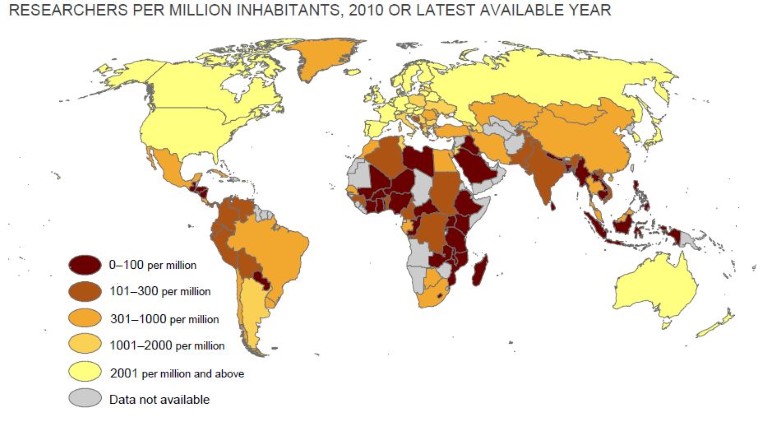Research
The support has three main aims:
- The development of new knowledge
- Strengthening research capacity in low- and middle-income countries
- More systematic use of research-based knowledge in policy-making and practice.
Programmes supported by Norad often contribute to achieving more than one of the objectives. The following are examples of Norad's portfolio of research programmes, grouped according to the primary objective of the programme.
Development of new knowledge
People create development. To be able to steer development in the right direction, a knowledge of ends and means is crucial. Consequently, Norad finances knowledge development in many areas that are important to low- and middle-income countries. At the same time, the themes must reflect the priorities of Norwegian development policy.
It is important that knowledge that is to be used is based on reliable sources and that the right methods are used to develop it. Norad therefore channels funds for research in Norway through the Norwegian Research Council, which arranges for tendering and scientific quality assurance of the research. In order to ensure that research has the greatest possible relevance to the problems of low- and middle-income countries, Norad normally requires that Norwegian researchers collaborate with researchers from these countries.
The two biggest programmes finance research on global health through the Programme for Global Health and Vaccination Research (GLOBVAC) and research on development issues through the programme Norway as a Global Partner (NORGLOBAL).
Norad also supports research through international organisations. Examples are the development of new drugs and vaccines through international product development partnerships such as International AIDS Vaccine Initiative (IAVI), International Partnership for Microbicides (IPM), Tuberculosis Vaccine Initiative (TBVI), Medicines for Malaria Venture (MMV) and Drugs for Neglected Diseases initiative (DNDi).
In addition, global agricultural research is supported through the CGIAR Consortium (CGIAR) and the programme Tax for Development provides support for research through the International Centre for Tax and Development Research Programme Consortium (ICTD).
Strengthening of research capacity in low- and middle-income countries
It is important that low- and middle-income countries (LMICs) have institutions that fund research focusing on their own issues. This makes the research more relevant and reduces the distance between researchers, policy-makers and the general public.
At the same time, global challenges raise many important questions. Discussions around good, balanced solutions need participation of researchers and policy-makers from all parts of the world. However, research funding is very unevenly distributed around the world (see image below). The participation of low- and middle-income countries in both international research communities and forums where knowledge and policy are developed is therefore often weak in relation to the population figures of these countries.

According to a 2012 fact sheet on global investment in research from UNESCO's Institute for Statistics, the majority of low- and middle-income countries spend less than one per cent of their gross domestic product (GDP) on research. In 2009, Africa spent 0.4 per cent of GDP on research. A World Bank overview shows countries' investment in research in relation to GDP.
As a corrective to this, Norad provides core funding to some research institutions in LMICs. Examples are the African Economic Research Consortium (AERC), Council for the Development of Social Science Research in Africa (CODESRIA), Latin America Council of Social Sciences (CLACSO) and African Centre for Technology Studies (ACTS).
Norad also supports capacity development in higher education and research through the Norwegian Programme for Capacity Development in Higher Education and Research for Development (NORHED). One of the aims of this project is to enable countries to use their own resources to conduct research.
More systematic use of research-based knowledge in policy-making and practice
Norad wishes to help to ensure that efforts to promote development and reduce poverty are based on the highest quality and most up-to-date knowledge available. This applies both to Norwegian development policy and to the policy conducted in low- and middle-income countries and by global actors. Research results should be published internationally and preferably in open access sources.
Researchers who receive funding through Norad's allocations also undertake to communicate the results of their research through general public forums. The Norwegian Research Council additionally arranges seminars and conferences where research results are communicated.
Contributing to higher education in low- and middle-income countries through the NORHED programme is a means of putting the countries in a better position to develop and use research-based knowledge in their policies. An important aspect of the activities of a number of the organisations that Norad supports through its research allocation is communicating the results of their research to policy-makers and the general public.
Norad wishes to enter into a funding agreement with the Think Tank Initiative (TTI), which finances think tanks in a number of low- and middle-income countries. One of the main tasks of these institutions is to communicate research-based knowledge to policy-makers.
